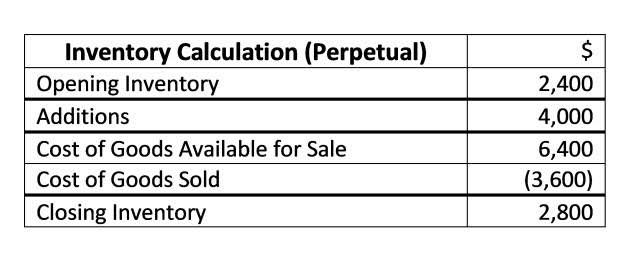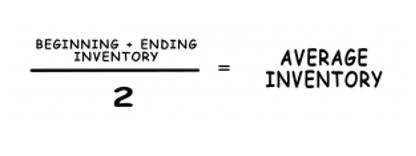
The invoice section of QuickBooks Self-Employed is great for keeping track of who has paid you and which bills are still outstanding. However, it’s important to note that settled invoices don’t carry over to your tax summary and profit and loss report automatically. Once you’ve marked an invoice as “Paid,” you will still need to create a new transaction for the amount.

QuickBooks Online, on the other hand, was praised for its ease of adding vendors and customers as well as its helpful tutorial for beginners. What people didn’t like was the difficulty of navigating past transactions and the lack of customizations for reporting. Once you’ve decided QuickBooks is the accounting solution for your business, you have a few more decisions to make—namely, should you use QuickBooks Online or Self-Employed? We think Online is better for small businesses and Self-Employed is better for freelancers, but it all depends on your needs. Learn more in this QuickBooks Online vs. QuickBooks Self-Employed review.
Can I use QuickBooks Online if I’m self-employed?
First of all, QuickBooks Self-Employed includes built-in mileage tracking—a crucial feature if you plan to include business travel as a tax write-off. QuickBooksOpens a new window allows you to create your own tax profile that contains all necessary information required to calculate your annual tax bill. In the UK, for example, you must enter whether you’re married or single, and what your personal tax-free allowance is. The tax summary screen displays all relevant income and expenses, and it lists your tax liabilities at the bottom of the page. This should be all that you need to complete an online tax return.
QuickBooks Self-Employed is QuickBooks’ freelance-specific bookkeeping software. It starts at $15 a month and offers features like mileage tracking, basic invoicing, and receipt scanning. In contrast, QuickBooks Online was built for freelancers, sole proprietors, and small-business owners with employees. It has more expansive accounting features than QuickBooks Self-Employed, including report generation and business income tracking, and starts at $30 a month.
Online Banking Feed for QB Enterprise ending?
Stay updated on the latest products and services anytime anywhere. QuickBooks Self-Employed already includes stellar tax help, especially in terms of quarterly tax estimations. But if you want even more tax help, you can sign up for the Self-Employed Tax Bundle plan ($25 per month) or the Self-Employed Live Tax Bundle plan ($35 per month). QuickBooks is also pretty good at providing quick but comprehensive help for first-time users. If you’re not sure where to start, we recommend QuickBooks’ handy video tutorials.
Predicting your own taxes based on an annual income you haven’t yet earned is hard, to say the least. Business mileage is an important, tax-deductible expense — which often isn’t recorded in the correct way. However, if you’re not claiming for legitimate transport expenses that are critical to your business, you could end up paying more tax than you need to. Fortunately, QuickBooks Self-Employed makes the process easy. You can add a post below if you have other questions about linking your bank account. Temporarily, you can manually import your bank data to add all your old and recent transactions in QuickBooks Self-Employed without delays.
Limited accounting features
Once they accept your invitation, they can work in your account. All Zoho Books reports can be exported to Microsoft Excel or as a CSV file or be exported to other Zoho applications. How many times have you run a report and wondered exactly what makes up the totals on one of those reports? Being able to drill down from the report total to the underlying documents is a great way to see those totals and let you know if further investigation is needed. Customer reviews of QuickBooks Self-Employed noted that it’s very easy to use and has an interface that’s simple to navigate. On the negative side, some people noted a delay when tracking purchases, which makes it hard to see up-to-the-minute finance tracking.
- But, cost aside, there are other reasons why you may want to look elsewhere for reporting options.
- But if you want even more tax help, you can sign up for the Self-Employed Tax Bundle plan ($25 per month) or the Self-Employed Live Tax Bundle plan ($35 per month).
- Unfortunately, the majority of reports offered are only available in the more expensive plans, leaving those using the less-expensive plans little in the way of available reporting options.
- To cancel your subscription, please click here and follow the prompts.
- Discount available for the monthly price of Self-Employed Live Tax Bundle (“Live Bundle”) is for the first 3 months of the subscription starting from date of enrollment.
- If sending basic invoices is all you need, we can recommend plenty of cheaper options.
Zoho Books offers excellent inventory management capability, plus its banking connectivity allows you to connect all of your bank and credit cards to the platform. Solid invoicing, purchase order processing, and even time tracking are available in the application. One of the best features is the Client Portal, which lets you share invoices, reports, estimates, and statements with quickbooks self employed login your customers. In general, we recommend QuickBooks Online over QuickBooks Self-Employed, even for freelancers. QuickBooks Online costs more, but it also offers more thorough invoicing and additional insight into your cash flow. It also connects to Shopify and automatically adds sales tax to your invoices, two crucial features for sole proprietors who sell products online.